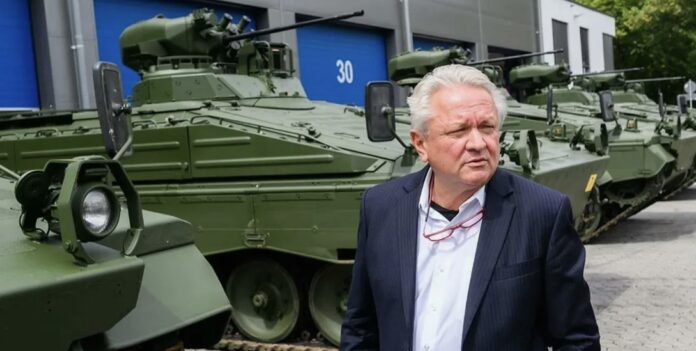Armin Papperger, the head of Rheinmetall, is concerning the absence of explosive materials in Germany. He notes that most explosives for artillery shells are shipped from China.
Papperger claims that the conflict in Ukraine has significantly changed approaches to war and weapons manufacturers in Germany. He reports that Rheinmetall from Dusseldorf plans to post hundreds of thousands of shells in Ukraine in 2024, including those that have a range of up to 100 kilometers.
Papperger claims that in the modern war such shells are extremely important. He points out that the Western world is not ready for a traditional war, and the production of artillery shells in Europe and the US has decreased while Russia continues to increase its capacity.
Papperger denies the statement that the German military industry is limited only by the production of tanks, and emphasizes the need for the development of ammunition production.
He says that Rheinmetall plans to build new plants for the production of artillery shells in Lower Saxony and Lithuania, as well as launch a joint project for weapons production in Ukraine. Papperger reports that the US and India have already found interest in cooperation with Rheinmetall in this sector.
The company also focuses on ensuring the safety of supply chains. In 2023, RheinMetall invested almost € 1.3 billion in this segment to create explosive materials, armor and ammunition steel for several years. However, there is a lack of explosive materials in Germany, which leads to the fact that most of the explosives for artillery shells are supplied from China, which is the largest manufacturer in this industry.
In general, Rheinmetall management assumes that the defense industry of Germany will have to work continuously for about ten years to provide the necessary stocks for the Bundeswehr in accordance with the "military potential" declared by Minister of Defense Boris Pistorius.
However, according to Armin Papperger's statement, these reforms may be inspired if the special fund is exhausted and will not be enough to be 30 billion euros. From his point of view, a new approach is needed, which should be extremely flexible to meet the needs. Otherwise, the NATO requirement for the allocation of 2% of GDP for defense may remain unattainable.
With regard to RheinMetall, the CEO considers current market capitalization, at present is almost 22 billion euros, more than twice to about 50 billion euros in the medium term can be increased.


